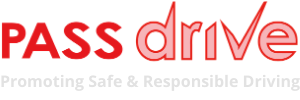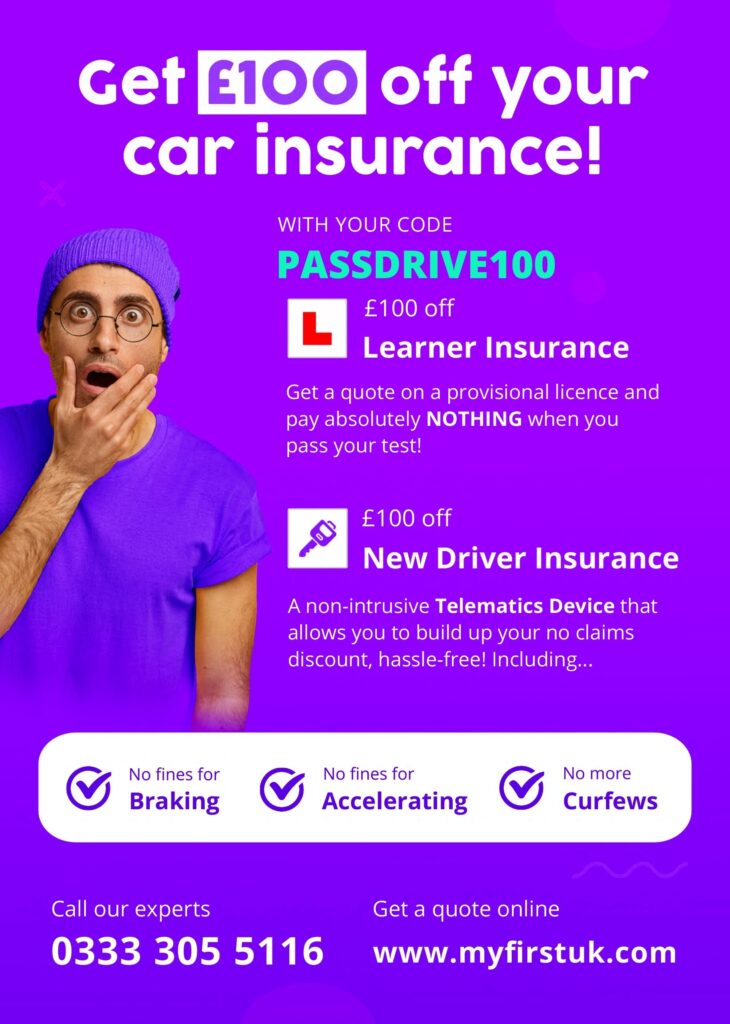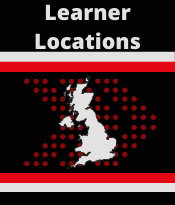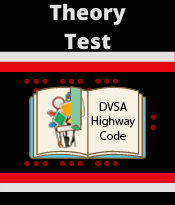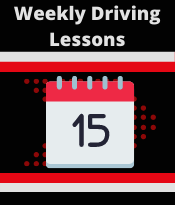Looking forward to your first driving lesson? With the big day fast approaching, you should take the time to make sure you’re prepared. This is the beginning of an exciting period in your life, as you start your journey to become a safe and responsible driver. It can be nerve-wracking, to begin with, but after a few lessons, you’ll become more confident behind the wheel. Your driving instructor will be there for you every step of the way and will help guide you on your journey to achieving your freedom.
It can be helpful to know what to expect from your first driving lesson, so we’ve created this handy guide to help you on your way. You might not be driving at high-speed on dual carriageways, to begin with, but it can be much easier to pick up the basics if you know what to expect.
Before Your First Driving Lesson
You should take the time to prepare before your first driving lesson, so you’re not running out the door at the last minute. Be sure to double-check the date and time of your first lesson, you don’t want to be late, and get plenty of sleep the night before. Driving requires lots of concentration, and you should never drive when you’re tired. If you’re over the age of 18, do not drink the night before.
What to Bring To Your First Lesson
On the day of your first driving lesson, be sure to have a good breakfast and prepare for your lesson. You should wear a pair of comfy shoes, such as trainers, as these make it easier to get to grips with the pedals. Remember to bring your glasses or contact lenses if you wear them and your provisional driving licence. If you’ve not already paid for your first lesson, you’ll need to bring money to pay your driving instructor.
Meeting Your Driving Instructor
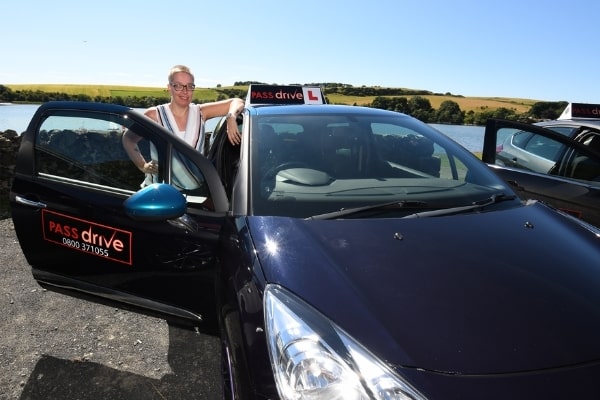
Make sure that you arrive at your arranged meeting point in plenty of time. This is usually a convenient area near your home. It’s important to make a good first impression, and you don’t want to waste your time and money by arriving late. Most driving instructors will wait for you in their car, so be sure to keep an eye out for them arriving.
You’ll likely get in the passenger seat, to begin with. This will allow your instructor to go through the basics with you and double-check your provisional driving licence.
Once you’ve gone through the basics with your driving instructor, its time to get behind the wheel. If you live in a quiet residential area, you might be able to get started right away. Otherwise, your driving instructor will drive you to a quieter part of town to get to grips with the basics.
What Will I Learn On My First Driving Lesson?
Don’t worry, you won’t be tackling busy roads, to begin with. Your first driving lesson will be in a quiet part of town, usually in a residential area or industrial estate. This gives you time to learn the basics, without pressure from other road users.
The Cockpit Drill:
When getting behind the wheel for the first time, you’ll need to make some adjustments. This is called a cockpit drill, and it is used to make sure that you have a comfortable and safe seating position before setting off. The cockpit drill includes:
- Making sure that all doors are closed and secure.
- Ensuring that your seat is in a comfortable position.
- Adjusting your steering wheel to the right height.
- Double-checking that your seatbelt is secure.
- Making sure that your mirrors are adjusted to give you a view of your surroundings.
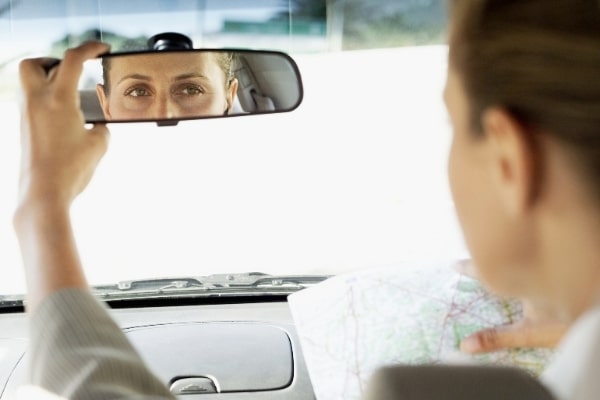
The Controls
Once you’ve completed the cockpit drill, and are in a comfortable seating position, it’s time to run through the controls. The main controls that you will cover, to begin with, will be the pedals, handbrake, indicators and how to change gear. If you’re learning to drive in a manual car, you will have three pedals to get to grips with; the accelerator, brake and clutch. Alternatively, if you’re taking automatic driving lessons, you’ll only have the accelerator and brake pedals. You also won’t have to worry about learning to change gear as the car will do this for you.
Before moving off, be sure to check with your instructor if you are unsure of any of the controls. You will start slowly, as you learn to get to grips with the vehicle’s controls, and your instructor will coach you as you build confidence. Most instructors will have a dual-control car. This means if you get confused at any point, they will be able to help you out.
We recommend taking a 2-hour lesson, as this gives you time to learn the basics of controlling the car and allows you to get some driving in. You’ll be learning and having so much fun that this will no doubt fly by.
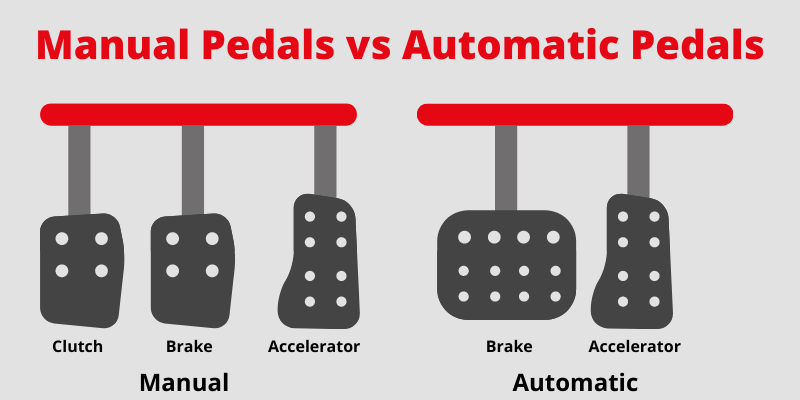
Moving Off On Your First Driving Lesson
Once you’ve got to grips with how the controls work, it will be time to get started. Before you turn on the engine, your driving instructor will explain a few different procedures. You’ll cover some of the basics in your first driving lesson, including:
- Moving off: getting ready to move off safely and preparing to use your gears.
- Clutch control: this includes finding the biting point.
- Observations: checking all around you and using your mirror to check that it is safe to move off. Remember to check those blind spots.
- Signalling: using your indicators to signal to any pedestrians or other road users.
- Changing gear: you’ll likely be using first and second gear, to begin with.
- Stopping: you will learn how to safely bring the car to a halt, with use of the brake and clutch.
- Safely parking alongside the curb.
This may feel like a lot for your first lesson, but take the time to relax, and let your driving instructor know if you have any questions. After a few driving lessons, you’ll become more confident and comfortable, with the basics of learning to drive.
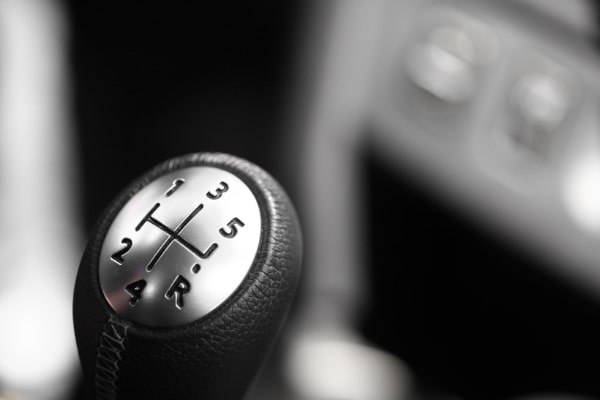
After Your First Driving Lesson
Once you have completed your first driving lesson, your driving instructor will drop you off at home. Take the time to have a chat with your instructor about how your lesson went, and let them know about any areas you’d like to work on next time. This will also allow you to organise your next driving lesson. Some instructors will offer block booking discounts, which allow you to book the same time slot, over several weeks. Everyone learns to drive at their own pace, so whether you want to do one lesson a week or a few, it’s up to you, providing your instructor has availability.
After your first driving lesson, you should take the time to start thinking about your theory test. You will need to pass your theory test before you can book your practical driving test. Some people prefer to do this early to fully focus on their driving, whereas, others like to wait until their more comfortable behind the wheel. We recommend using Driving Test Success Anytime to ensure that you are fully prepared for your theory test. This gives you a complete guide to everything you need to know, with lots of mock tests and quizzes to give you plenty of practice. Be sure to read our guide on how to pass your theory test for more hints and tips.

Practice Outwith Your Driving Lessons
Once your first driving lesson is out the way, and you have a grasp of the basics, you can start to do some extra private practice. If you have a friend or family member who’s happy to help, you can practice with them to build upon what you’ve learned during your driving lessons. To do this, they must be over the age of 21, have held a full driving licence for over 3 years, and not be asking for money. They must also not be distracted or using their phone during private lessons. You must also make sure that you are insured to drive their vehicle.
We’ve teamed up My First UK, to help you save money on your insurance to help you save money. They have a range of great insurance options available, and with our special offer, you can get £100 off of several insurance policies. Simply click the image below to make an enquiry.
Well there you have it! You now know what to expect from your first driving lesson. If you have any questions or would like to find out more about our driving lessons, please do not hesitate to get in touch.
Call: 0800 371055 | Email: info@pass-drive.co.uk
